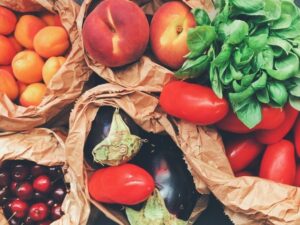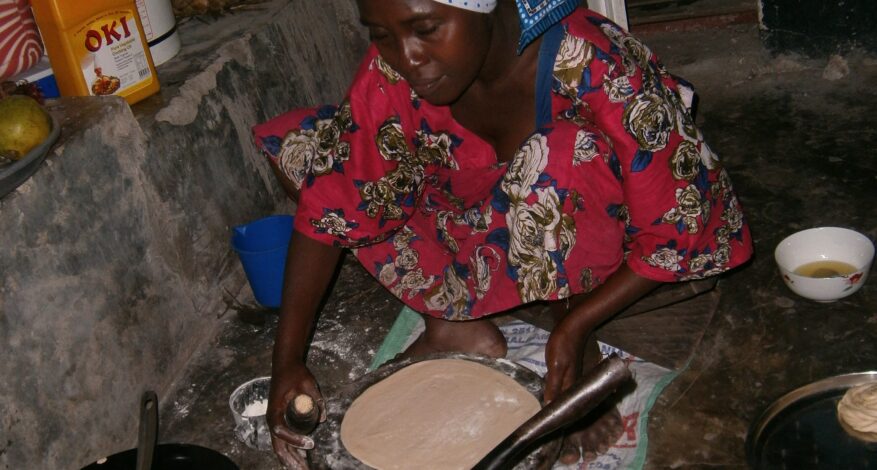HOW MUCH FOOD DO WE WASTE?
According to the Food and Agriculture Organization of the United Nations, around 690 million people suffer from hunger and 3 billion people have no sufficient financial means to afford a healthy diet. Nevertheless, approximately 14% of the food produced all around the world does not reach the market, and tons of food are wasted. Food loss and food waste are responsible for major economical, health, and environmental issues and we must act fast in order to save lives and protect the environment.
What do ‘food loss’ and ‘food waste’ mean?
 When it comes to food wastage, we should take two factors into consideration. The first one is ‘food loss’, which is the food lost during the early production stages: harvesting, storage, and transportation. In some cases, farmers do not harvest their crops as either the costs for transportation and labour are higher than the market produce price or the demand is not high enough. Furthermore, also packaging plays a huge role in food loss. Although appropriate packaging is essential for the maintenance of food quality, it can also become an issue for the food industry. A great deal of food is thrown away because it does not meet the companies’ aesthetic standards and the suitable packaging sizes. Transportation can be a cause of food waste too, especially in developing countries. Maintaining food quality during transportation, especially of fruit and vegetables, can be challenging as it requires special care. It needs appropriate packaging and suitable temperatures. In countries where there is a lack of adequate roads and means of transportation, the food is damaged and, when it gets to the market, it is not saleable anymore.
When it comes to food wastage, we should take two factors into consideration. The first one is ‘food loss’, which is the food lost during the early production stages: harvesting, storage, and transportation. In some cases, farmers do not harvest their crops as either the costs for transportation and labour are higher than the market produce price or the demand is not high enough. Furthermore, also packaging plays a huge role in food loss. Although appropriate packaging is essential for the maintenance of food quality, it can also become an issue for the food industry. A great deal of food is thrown away because it does not meet the companies’ aesthetic standards and the suitable packaging sizes. Transportation can be a cause of food waste too, especially in developing countries. Maintaining food quality during transportation, especially of fruit and vegetables, can be challenging as it requires special care. It needs appropriate packaging and suitable temperatures. In countries where there is a lack of adequate roads and means of transportation, the food is damaged and, when it gets to the market, it is not saleable anymore.
 The second important factor is ‘food waste’, a term used to describe all the food discarded by retailers and consumers. Similar to food discarded because of packaging standards, during the sorting process, the food without the required shape, size, and colour is often rejected by the supply chain. A further example is that food is wasted because of expiration dates. As stated in this article by the European Commission, consumers often misunderstand the concept of ‘use by’ and ‘best by’. When people find out that a product has expired, they often throw it away without realising that the majority of the food is still in perfect quality conditions even a few days after the expiration date. That is why, by the end of 2022, the Commission will take action so as the expiration dates become more understandable for consumers, to avoid any unnecessary waste. Finally, restaurants are another major source of wasted food. At the end of the workday, numerous companies working in the catering sector, end up throwing away great quality leftover food because it is unsold.
The second important factor is ‘food waste’, a term used to describe all the food discarded by retailers and consumers. Similar to food discarded because of packaging standards, during the sorting process, the food without the required shape, size, and colour is often rejected by the supply chain. A further example is that food is wasted because of expiration dates. As stated in this article by the European Commission, consumers often misunderstand the concept of ‘use by’ and ‘best by’. When people find out that a product has expired, they often throw it away without realising that the majority of the food is still in perfect quality conditions even a few days after the expiration date. That is why, by the end of 2022, the Commission will take action so as the expiration dates become more understandable for consumers, to avoid any unnecessary waste. Finally, restaurants are another major source of wasted food. At the end of the workday, numerous companies working in the catering sector, end up throwing away great quality leftover food because it is unsold.
How can we reduce food waste?
As consumers, there are several small actions that can become part of our daily habits to avoid food waste.
 Firstly, when grocery shopping, we should make ‘to buy’ lists to avoid buying large quantities of food that, eventually, will not be eaten. This tip is useful to both avoid food wastage and in the management of our financial resources: no one wants to spend money on products that will not be used. Secondly, we could use our freezers more. Almost any type of food can be frozen before or after being cooked, allowing us to preserve it for longer periods of time. Batch cooking is an excellent meal plan tip to store your food properly, while also saving time and money. According to this method, you do your grocery and cook your food in batches for the whole week ahead. Moreover, food waste can also be composted. There are specific bins that transform your raw or cooked food waste into nutrients for the soil; so you don’t waste any food, your garden will benefit from the waste and you will no longer spend money on expensive fertiliser. Finally, instead of throwing your leftover food away, you could share it with your neighbours or donate it to people who are in need.
Firstly, when grocery shopping, we should make ‘to buy’ lists to avoid buying large quantities of food that, eventually, will not be eaten. This tip is useful to both avoid food wastage and in the management of our financial resources: no one wants to spend money on products that will not be used. Secondly, we could use our freezers more. Almost any type of food can be frozen before or after being cooked, allowing us to preserve it for longer periods of time. Batch cooking is an excellent meal plan tip to store your food properly, while also saving time and money. According to this method, you do your grocery and cook your food in batches for the whole week ahead. Moreover, food waste can also be composted. There are specific bins that transform your raw or cooked food waste into nutrients for the soil; so you don’t waste any food, your garden will benefit from the waste and you will no longer spend money on expensive fertiliser. Finally, instead of throwing your leftover food away, you could share it with your neighbours or donate it to people who are in need.
We all must do our best to fight food waste, make sure everyone has access to quality food, and protect our planet.

